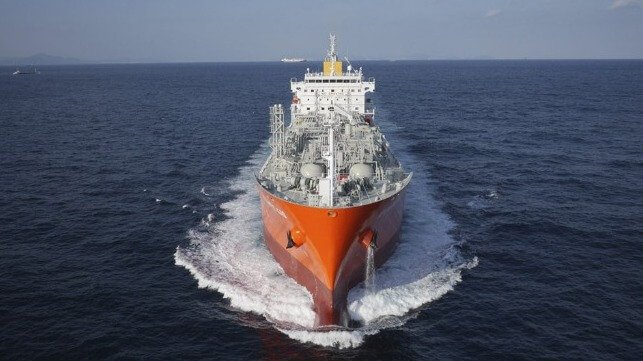A Danish joint venture that aims to be a first mover in CO2 transport is seeking to advance its efforts by joining with Norway’s Aker Carbon Capture as they also move towards the construction of the first large dedicated vessels for CO2 transport. Dan-Unity CO2 of Denmark established in May 2021 by Danish shipping companies Evergas and Ultragas reports it will work with Aker Carbon Capture, which was spun out of Aker Solutions to become a pure-play carbon capture company working in a range of industries, including the cement, bio and waste-to-energy, gas-to-power and blue hydrogen segments.
“The key to success for CCUS comes by strong partnerships, enabling to offer customers cost-effective and safe solutions all the way,” said Steffen Jacobsen, CEO of Dan-Unity CO2. “Transporting CO2 by sea allows for maximum flexibility and multiple sourcing points, thus unlocking economies of scale for many CCS projects, often delivering a lower cost per tons compared with other transport solutions.”
Aker Carbon Capture and Dan-Unity CO2 said they will work together to explore the development potential of future CCS value chains by collaborating on market analysis and insight, to identify mature specific opportunities. The companies will utilize their collective industry expertise to identify technical and commercial risks across the CCS value chain, including capture and liquefaction technology, loading and offloading operations, offshore offloading, intermediate storage, and permanent subsurface storage.
“By teaming up with the industry leaders in the fields of CO2 transport and storage, we aim to establish compelling full value chain offerings that will enable industrial emitters of CO2 to decarbonize their assets faster,” said Jon Christopher Knudsen, Chief Commercial Officer at Aker Carbon Capture.
In November 2021, Dan-Unity CO2 reported that it had received sign approval from ABS for the world’s first dedicated CO2 carrier. Working with the German gas engineering design firm TGE Marine, plans were developed for vessels capable of large-scale CO2 transportation. The designs with a capacity of 12,500 cbm and 22,000 cbm, received the AiP from ABS ensuring that they can safely transport CO2 and providing the approvals needed to proceed to construction. The company said it could build the first vessel in just over two years’ time.
CO2 transport is seen as an emerging area where shipping companies can build on their experience with other gas transportation. Several projects are underway in Japan and South Korea looking to develop vessels to transport CO2 for the capture site to offshore storage. Last fall, Exmar, a gas carrier operator headquartered in Belgium, announced it was partnering with Lattice, a South Korean tank manufacturer, to develop a new type of CO2 carrier that they believe will provide the solutions required to transport large quantities of carbon for either reuse in industrial applications or storage.
Source: The Maritime Executive






